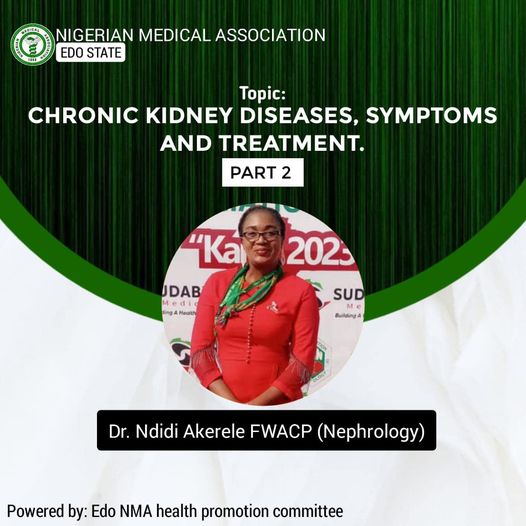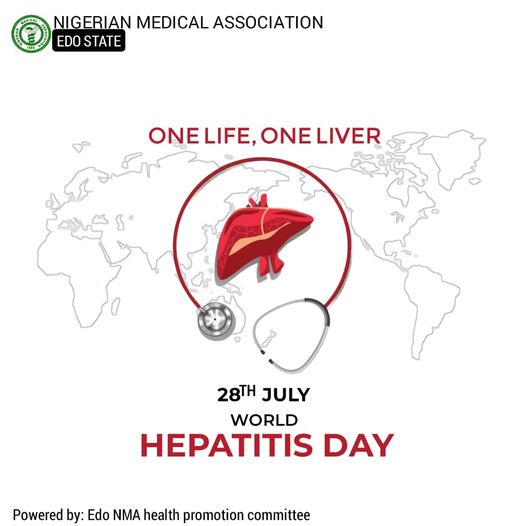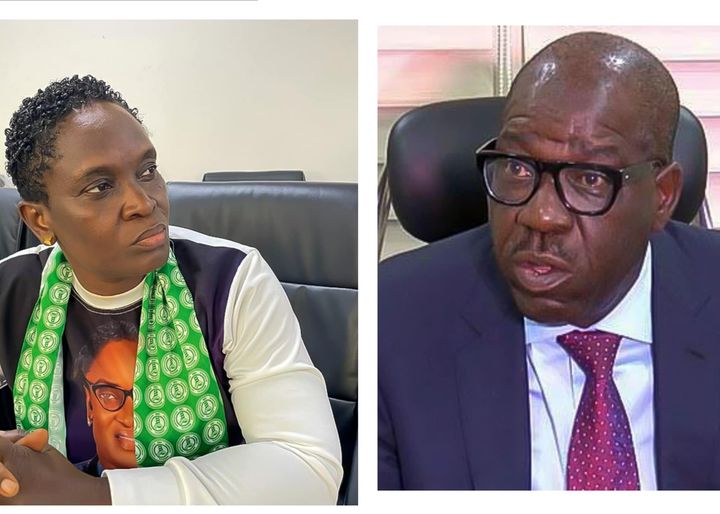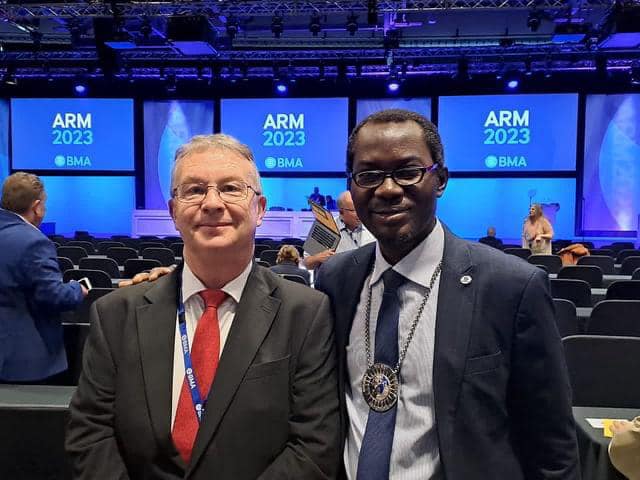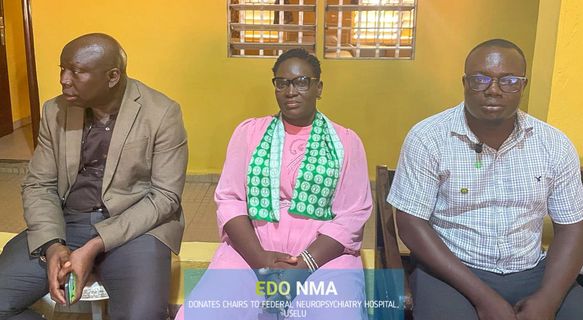Continuation from the previous post. Complications Chronic kidney disease can affect almost every part of the body. Potential complications include: • Fluid retention, which could lead to swelling in the arms and legs, high blood pressure, or fluid in the lungs (pulmonary edema) • A sudden rise in potassium levels in the blood (hyperkalemia), which could impair the heart’s function and can be life-threatening • Anemia • Heart disease • Weak bones and an increased risk of bone fractures • Decreased sex drive, erectile dysfunction or reduced fertility • Damage to the central nervous system, which can cause difficulty concentrating, personality changes or seizures • Decreased immune response, which makes them more vulnerable to infection • Pericarditis, an inflammation of the sac-like membrane that envelops the heart (pericardium) • Pregnancy complications that carry risks for the mother and the developing fetus • Irreversible damage to the kidneys (end-stage kidney disease), eventually requiring either dialysis or a kidney transplant for survival Prevention To reduce the risk of developing kidney disease: • Avoid abuse of over-the-counter medications like Non steroidal anti-inflammatory drugs ie pain relievers, such as aspirin, ibuprofen and acetaminophen. Taking too many pain relievers for a long time could lead to kidney damage. • Maintain a healthy weight. Weight for those obese and overweight. If you’re at a healthy weight, maintain it by being physically active most days of the week. • Don’t smoke. Cigarette smoking can damage your kidneys and make existing kidney damage worse. • Manage medical conditions like diabetes, high blood pressure with your doctor’s help. Diagnosis For kidney disease diagnosis, the individuals may also need certain tests and procedures to determine how severe the kidney disease is (stage). Tests might include: • Blood tests. Kidney function tests look for the level of kidney impairment, such as creatinine and urea, in the blood. • Urine tests. Analyzing a sample of the urine can reveal abnormalities that point to chronic kidney disease and help identify the cause of chronic kidney disease. • Imaging tests. The doctor might use ultrasound to assess the kidneys’ structure and size. Other imaging tests might be used in some cases. • Kidney biopsy. The doctor might recommend a kidney biopsy, which involves removing a sample of kidney tissue. The biopsy sample is sent to a lab for testing to help determine what’s causing your kidney problem. Treatment Depending on the cause, some types of kidney disease can be treated. Often, though, chronic kidney disease has no cure. Treatment usually consists of measures to help control signs and symptoms, reduce complications, and slow progression of the disease. If the kidneys become severely damaged, they may require treatment for end-stage kidney disease. Doctors will work to slow or control the cause of the kidney disease. But kidney damage can continue to worsen even when an underlying condition, such as diabetes mellitus or high blood pressure, has been controlled. Treating complications Kidney disease complications can be controlled to make people with kidney disease more comfortable. Treatments might include: • High blood pressure medications. Medications will be recommended to lower the blood pressure and to preserve kidney function. • Medications to relieve swelling. People with chronic kidney disease often retain fluids. This can lead to swelling in the legs as well as high blood pressure. Medications called diuretics can help maintain the balance of fluids in the body. • Medications to treat anemia. Supplements of the hormone erythropoietin, sometimes with added iron, help produce more red blood cells. This might relieve fatigue and weakness associated with anemia. • Medications to lower cholesterol levels. Medications like statins may be recommended to lower cholesterol level. People with chronic kidney disease often have high levels of bad cholesterol, which can increase the risk of heart disease. • Medications to protect the bones. Calcium and vitamin D supplements can help prevent weak bones and lower the risk of fracture. • A lower protein diet to minimize waste products in the blood. A registered dietitian can suggest ways to lower your protein intake while still eating a healthy diet. • Doctors might recommend regular follow-up testing to see whether your kidney disease remains stable or progresses. Treatment for end-stage kidney disease If the kidneys can’t keep up with waste and fluid clearance on their own, at that point, the individuals need dialysis or a kidney transplant. • Dialysis. Dialysis artificially removes waste products and extra fluid from the blood. • In hemodialysis, a machine filters waste and excess fluids in the blood. In peritoneal dialysis, a thin tube inserted into the abdomen fills the abdominal cavity with a dialysis solution that absorbs waste and excess fluids. After a time, the dialysis solution drains from the body, carrying the waste with it. • Kidney transplant. A kidney transplant involves surgically placing a healthy kidney from a donor into the recipient. Transplanted kidneys can come from deceased or living donors. After a transplant, the individual will need to take medications for the rest of the life to keep the body from rejecting the new organ. Conservative management For those who choose not to have dialysis or a kidney transplant, a third option is to treat your kidney failure with conservative measures. Conservative measures likely will include symptom management, advance care planning and care to keep you comfortable (palliative care).
WORLD HEPATITIS DAY
World hepatitis day is one of the World health organization’s officially mandated global public health days . It is a day when the world comes together to raise awareness of hepatitis, one of the most deadly and neglected diseases and health crises- one that is claiming a life every 30 seconds. Globally, 354million people live with hepatitis with more than 1.1million lives lost each year to hepatitis B and C. Yet we have tools to eleminate the disease by 2030. Today , July 28, we raise our collective voices to call for more action for the people affected by hepatitis ‘We’ re not waiting ‘ is the new campaign theme to launch WHD 2023. It highlights the need to accelerate elimination efforts of viral hepatitis and the urgent need of testing and treatment for the real people who need it. On this day, the aim is to unite the global community to demand action from decision makers to prioritise the elimination of viral hepatitis – one of the most deadly and neglected diseases. Along this , it will also highlight the social injustice and inequity caused by lack of action on hepatitis elimination and focus on the positive action needed to get on track to meet the 2030 elimination goals Action can’t wait – People living with viral hepatitis unaware can’t wait for testing – People living with hepatitis can’t wait for life savings treatment – Pregnant mothers can’t wait for hepatitis screening and testing – Newborn babies can’t wait for birth dose vaccination – Community organization can’t wait for greater investment – Decision makers can’t wait and must act now to make hepatitis elimination a reality through political will and funding – The Numbers – 354 million living with chronic hepatitis ——-2.3million pple living with HIV and hepatitis C -2.7million pple living with HIV and hepatitis B – 1..2 million lives are lost each year to hepatitis B and C – Only 43% of children receive hepatitis B dose vaccine – 7% of pple living with TB also live with hepatitis C Every 30secs someone loses their life to a hepatitis related illness It is our collective responsibility to raise awareness, dispel myths, and pave the way for a future free from the burden of this silent epidemic Prevention through Vaccination and Safe Practices Prevention is possible! Vaccines and effective treatment exists, offering hope for all. Vaccination against Hepatitis B are available for both adults and children, it remains the most effective means of prevention. National immunization programs must be strengthened and expanded to reach vulnerable populations. Additionally, promoting safe injection practices, ensuring blood safety, and advocating for harm reduction strategies can significantly reduce the transmission of Hepatitis C. Early Detection: The Key to Timely Intervention Regular screening and testing are vital to identify individuals living with chronic Hepatitis. By implementing routine screenings, especially for high-risk groups, we can diagnose the infection early, link affected individuals to care, and prevent further transmission. Access to Treatment and Care ————————————————– Universal Health Coverage Access to affordable and equitable healthcare services is an essential human right. Governments, in collaboration with international organizations, must strive to implement universal health coverage policies that ensure the availability of diagnostics, antiviral therapies which are safe options for curing hepatitis C and reducing the complications of Chronic HBV Breaking the Silence: Raising Awareness Awareness is the cornerstone of progress. By fostering open dialogue, dispelling myths, and combating stigma, we empower individuals and communities to take proactive steps towards prevention, testing, and treatment. Education campaigns, community engagement, and media outreach play pivotal roles in amplifying our collective voice. This is what NMA Edo state thrives to achieve today.” One life, one liver”
EDO NMA LAPOONS GOVERNOR OBASEKI OVER DECADENT FACILITIES GOVERNMENT HOSPITALS, NEGLECT OF DOCTORS WELFARE.
It was an embarrassing moment for the new commissioner of health in Edo state, Dr Samuel Alli, as the state chairman of the Nigerian medical association (NMA) Dr Udoka Imoisili took a swipe at her principal, Governor Godwin Obaseki, for the appalling state of the health facilities in public hospitals, and scant interest in the welfare of doctors. Imoisili also knocked the Governor for a perceived “serious disconnect between the leadership and the led”
WHAT YOU DIDN’T KNOW ABOUT CHRONIC KIDNEY DISEASE, SYMPTOMS, TREATMENTS AND LOTS MORE ( part 1)
Chronic kidney disease involves a gradual loss of kidney function. The kidneys filter wastes and excess fluids from the blood, which are then passed in your urine. Advanced chronic kidney disease can cause dangerous levels of fluid, electrolytes and wastes to build up in your body. In the early stages of chronic kidney disease, the persons might have few signs or symptoms. They may not realize they have kidney disease until the condition is advanced. Treatment for chronic kidney disease focuses on slowing the progression of kidney damage, usually by controlling the cause. But, even controlling the cause might not keep kidney damage from progressing. Chronic kidney disease can progress to end-stage kidney failure, which is fatal without dialysis (artificial filtering) or a kidney transplant. Symptoms Signs and symptoms of chronic kidney disease develop over time if kidney damage progresses slowly. Signs and symptoms of kidney disease are often nonspecific. This means they can also be caused by other illnesses. The kidneys are able to make up for lost function, the individuals may not develop signs and symptoms until irreversible damage have occurred. Depending on how severe it is, loss of kidney function can cause: Nausea, Vomiting, loss of appetite, Fatigue and weakness, sleep problems Urinating more or less, decreased mental sharpness, muscle cramps, Swelling of feet and ankles, dry, itchy skin, high blood pressure (hypertension) that’s difficult to control, Shortness of breath, if fluid builds up in the lungs, chest pain, if fluid builds up around the lining of the heart Diseases and conditions that cause chronic kidney disease include: • Type 1 or type 2 diabetes • High blood pressure • Glomerulonephritis, an inflammation of the kidney’s filtering units (glomeruli) Interstitial nephritis, an inflammation of the kidney’s tubules and surrounding structures • Polycystic kidney disease or other inherited kidney diseases • Prolonged obstruction of the urinary tract, from conditions such as enlarged prostate, kidney stones and some cancers • Vesicoureteral reflux, a condition that causes urine to back up into the kidneys • Recurrent kidney infection, also called pyelonephritis Risk factors Factors that can increase the risk of chronic kidney disease include: • Diabetes • High blood pressure • Heart (cardiovascular) disease • Smoking • Obesity • Being Black, Native American or Asian American • Family history of kidney disease • Abnormal kidney structure • Older age • Frequent use of medications that can damage the kidneys
EDO NMA LAPOONS GOVERNOR OBASEKI OVER DECADENT FACILITIES GOVERNMENT HOSPITALS, NEGLECT OF DOCTORS WELFARE.
https://tell.ng/edo-nma-lampoons-governor-obaseki-over…/ It was an embarrassing moment for the new commissioner of health in Edo state, Dr Samuel Alli, as the state chairman of the Nigerian medical association (NMA) Dr Udoka Imoisili took a swipe at her principal, Governor Godwin Obaseki, for the appalling state of the health facilities in public hospitals, and scant interest in the welfare of doctors. Imoisili also knocked the Governor for a perceived “serious disconnect between the leadership and the led” Speaking at the Ordinary General meeting of the Association of Resident Doctors, under the Edo State Government Employment, (ARD EDGE) today, the 7th of July 2023, the Chairman Dr(mrs) Imoisili, thanked the leadership of the Association for the honour. She lamented the deprivation and poor working conditions of health workers in the state. *”I admire your remarkable resolve and resilience, despite the harsh, difficult and not so encouraging working conditions, you all still beacon on hope against these odds, and organised an OGM” In her speech, she said, Edo NMA, is not oblivious of the challenges bedeviling Doctors, under the State employment. Ranging from; 1. The non payment of hazard allowance for almost a year now 2. The minimum wage not paid to only Doctors in the State 3. The disappearing residency programme* 4. Refusal to ensure palliatives despite going to work everyday in the face of fuel subsidy removal 5. The crappy and miserable working conditions. I could go on and on. To our utmost chagrin, His Excellency Governor Godwin Obaseki, has refused us an audience for almost a year now, despite these enormous challenges. We have written several letters requesting for courtesy visit, we have begged and lobbied with all channels humanly possible to table these challenges bedeviling our members, but to no avail. You cannot claim to be solving a problem for a people you are not in touch with, she cried. “There is a serious disconnect between the leadership and the led”. The good policies and amiable transformation agenda of this present Government needs to be properly integrated for maximum impact and benefit to the citizens. Good leadership is about listening to the people. Your Excellency Sir, we have been ignored and down trodden, our clock of patience is ticking away very fast. Our Doctors and Patients deserve something better. A tour through most of our hospitals across the state is nauseating. No restrooms, delapitated buildings, ragged furniture and fittings, no light source and devoid of water, the environment, only fit for poultry. In addition to these dehumanising conditions, she decried staff shortage and lack of basic equipments, in some large hospitals serving a local government area, you may find just one doctor Manning the work space. She also said that freedom is not given but demanded, we are as certain as the sun that our emancipation is here, since the government does not regard us a force to be reckoned with, we shall take our lives in our hands, the road may be rough, but on this quest no going back. And think not that it is the state workers alone that are hurting, every Doctor in Edo State is grieving; *for upon the conduct of each, depends the fate of all, an injury to one is an injury to all. We have been pushed beyond the wall and a volcanic rumble and industrial disharmony is imminent. Please be reminded that Edo NMA is the social insurance of doctors in the state and if we do not rise up to these act of professional injustice melted out to our members, of what use is our existence?” Channels Television, Punch Newspapers, Vanguard NewsPaper Nigeria, Premium Times, Arise News Dr. Osahon Enabulele we would appreciate if you can lend your voice to Doctors in Edo stat
RESOLUTIONS OF LOCAL BODY ON DOCTOR’S WELFARE
DR ENABULELE @ Dr. Osahon Enabulele, WMA’S PRESIDENT URGES BRITISH GOVERNMENT TO EMBRACE RESOLUTIONS OF LOCAL BODY ON DOCTOR’S WELFARE, HEALTH CARE DELIVERY. https://tell.ng/enabulele-wmas-president-urges-british…/
Commemorating the 66th birthday of the Executive Governor of Edo State, His Excellency, Gov. Godwin Nogheghase Obaseki
Commemorating the 66th birthday of the Executive Governor of Edo State, His Excellency, Gov. Godwin Nogheghase Obaseki. The Edo State NMA, Ably led by her Chairman, Dr Udoka Imoisili, donated chairs to the children and Adolescents ward of the federal Neuropsychiatric Hospital, Uselu Benin city. You can watch video excerpt on our IG page. @Edo NMA official. Or click this link to watch: https://www.instagram.com/reel/CuWapZ4IyBA/?igshid=MzRlODBiNWFlZA==
The Chairman and SOC on behalf of members of the State Executive Council wish to thank ALL members of Edo State branch of the Nigerian Medical Association who attended the just concluded 1st NationalNMA Health Summit held in Asaba, Delta State. We look forward to a more robust participation in all NMA organised meetings. We are grateful to our CMDs Prof Ibadin and Prof. Akpede and former UBTH CMD, Prof. Eugene Okpere and the Ag DHS, SHMB Dr Ofunre Eboreime and his amiable wife for their presence. All our Medical Elders who were in attendance we owed this appreciation also. We thank the National President, Dr Osahon Enabulele, the NOC, NEC, NMA Delta State Branch and her Summit LOC for organising such a robust Summit. Our gratitude also goes to Dr Emmanuel Uduaghan, the Executive Governor of Delta State for the sponsorship. God bless EdoNMA God bless Edo Doctors Dr Quincy Atohengbe Secretary EdoNMA

